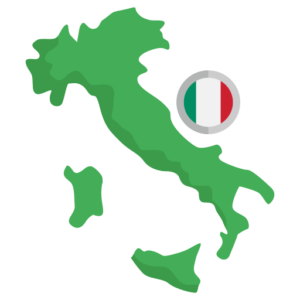- Casino News
- Industry News
A New Licensing Era Reshapes Italy’s Online Gambling


A New Licensing Era Reshapes Italy's Online Gambling


When Italy's updated online gambling framework came into effect, it signaled more than a routine administrative change. It marked a decisive shift in how the country intends to manage one of Europe's most active digital gambling markets. The activation of the new licenses by the Customs and Monopolies Agency (ADM) set the tone for a landscape that has been preparing for structural changes for months, aiming to streamline the sector and establish clearer regulatory expectations for all parties involved.
The ADM confirmed that the 52 licences were switched on early Thursday morning, after a short delay that pushed the activation forward from midnight to 7am. Officials described the transition as a reset aimed at introducing a more coherent operating environment. While the later-than-planned timeline raised some questions among operators, the agency emphasized that the delay stemmed from technical refinements rather than unresolved policy complications. By the time operations began, the regulator appeared intent on signaling that the new system was ready to function without disruption.
The financial commitment required to enter this new licensing environment was substantial. Each licence cost €7 million, bringing the state a total of €364 million in revenue from the application process alone. The price prompted some well-known international brands to step away from the Italian market rather than pursue the new authorizations. Among those opting not to reapply were Betway and Unibet, illustrating that the cost and conditions associated with the updated framework have influenced strategic decisions for operators with broad global portfolios.
By revising the licensing model and reducing the number of active operators, Italy is aligning its regulatory strategy with broader European trends that favor controlled access, monitored activity, and tighter oversight. The new system suggests that the regulator aims to encourage long-term stability rather than rapid expansion. The presence of fewer operators may also influence competitive dynamics, possibly shifting market share distribution as companies adjust their strategies under the revised conditions.


As Italy enters this new phase, the sector's future trajectory will depend on how operators adapt to the structured environment and whether the regulator maintains its pace of enforcement and modernization. The overhaul of the licensing regime indicates that the country is not only refining its approach but also preparing for evolving digital gambling trends. By reducing fragmentation and clarifying compliance obligations, Italy may be better positioned to navigate future developments in the sector more effectively.
Best Online Casinos
10 Recommended Online Brands On CasinoLandia That Will Enhance Your Gaming Experience
No results were found!








